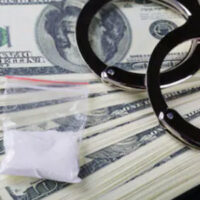What is a Controlled Substance Under Virginia Law?

It is a drug crime under Virginia law to possess, distribute, or manufacture certain dangerous substances, such as heroin or cocaine. Referred to legally as “controlled substances,” these compounds are often dangerous, and generally devoid of medical benefit. Accordingly, there are strict penalties for the possession, distribution, and manufacture of controlled substances, ranging from misdemeanor to felony charges.
Within this domain, Virginia law provides for three different types of controlled substances – regular, counterfeit, and imitation. The following sections will explore the specific definitions of each of those terms.
Regular Controlled Substances
Code of Virginia Section 18.2-247 provides the definition of a “controlled substance.” This term refers to a diverse assortment of drugs, pharmaceuticals, and other substances. Virginia law divides controlled substances into different categories – referred to legally as schedules – based on their accepted medical use (if any) and likelihood of abuse.
The Virginia schedules for controlled substances are as follows:
- Schedule I – Under Code of Virginia Section 54.1-3446, this schedule includes LSD, heroin, and similar substances;
- Schedule II – Under Code of Virginia Section 54.1-3448, this schedule includes cocaine, meth, PCP, and similar substances;
- Schedule III – Under Code of Virginia Section 54.1-3450, this schedule includes codeine, steroids, and similar substances;
- Schedule IV – Under Code of Virginia Section 54.1-3452, this schedule includes various sedatives and pharmaceuticals, such as Valium or Xanax;
- Schedule V – Under Code of Virginia Section 54.1-3454, this schedule includes various cough medicines and similar over-the-counter medicines; and
- Schedule VI – Under Code of Virginia Section 54.1-3455, this schedule includes various substances that are not actually drugs, but are harmful when consumed, such as nitrous oxide.
Counterfeit Controlled Substances
The definition of a “counterfeit controlled substance” also appears in Section 18.2-247. This term refers to fake goods that mimic an actual drug or pharmaceutical. These imitation drugs often bear an illegitimate trademark, trade name, or similar device. Taken as a whole, these imitation controlled substances are designed to deceive consumers into making a purchase, without providing the actual goods promised.
Imitation Controlled Substances
Section 18.2-247 also defines the term “imitation controlled substance,” which includes counterfeit controlled substances and other capsules, pills, and tablets that:
- Appears to be an actual and legitimate medication and is likely to cause confusion, mistake, or deceit; or
- Claims, implicitly or explicitly, to have the same stimulant or depressant effects as an actual controlled substance.
In the determination of whether something qualifies as an imitation controlled substance, there is a multifaceted analytical process. Generally speaking, though, there is consideration of evidence detailing standard marketing methods and accepted medical use (if any) of the drug.
Do You Need Legal Help?
If you have legal questions about any type of drug crime under Virginia law, it can be extraordinarily useful to speak with an experienced criminal defense lawyer. The Leesburg drug crime lawyers at Simms Showers LLP have familiarity defending against many different types of drug crimes, including, but not limited to: unlawful possession, distribution, or manufacture. If you need legal help with criminal defense, contact us today for a free initial consultation.
https://www.simmsshowerslaw.com/unlawful-possession-of-controlled-substances-under-virginia-law/
